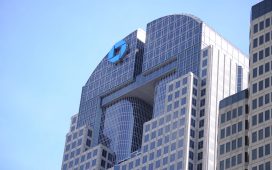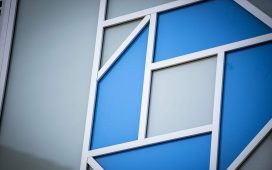Unlock the Editor’s Digest for free
Roula Khalaf, Editor of the FT, selects her favourite stories in this weekly newsletter.
HSBC’s chief executive Noel Quinn caught investors off guard by saying he would retire after five years, setting off a hunt for a successor at the London-headquartered bank.
Quinn, 62, has overhauled the lender since taking charge in 2019, selling off parts of its global operations to increase its focus on Asia, where it makes the lion’s share of its profits. He had recently signalled he would stay on for a few more years, according to insiders.
“After an intense five years, it is now the right time for me to get a better balance between my personal and business life. I intend to pursue a portfolio career going forward,” said Quinn.
But people with knowledge of the circumstances of Quinn’s departure said the timing of the decision was partly dictated by chair Mark Tucker and a desire to avoid the two top roles at the bank falling vacant at about the same time.
Tucker will reach the end of the nine-year recommended term limit for non-executive directors in 2026. The timeline would have coincided with Quinn approaching his 65th birthday, the age at which he had previously indicated he wanted to retire.
Tucker wanted to put a chief executive in place and oversee the transition at the bank, they said.
HSBC’s board said it had begun a formal process to find a new CEO, expected to be completed by the second half of this year, said Tucker. The lender is considering internal and external candidates.
Quinn will remain as group chief executive until his successor’s start or until the end of his notice period in April next year.
“Noel has had a long and distinguished 37-year career at the bank and we are very grateful for his significant contribution to the group over many years,” said Tucker.
Quinn joined the lender in 1987 through a subsidiary of Midland Bank, which was bought by HSBC five years later.
He was appointed interim chief executive in August 2019, after his predecessor John Flint was ousted from the top job just 18 months into the role. Quinn became permanent chief executive seven months later, a position he said he “would never have dreamt” of having when he joined the bank.
He said he needed “rest and relaxation” after an intense period in the job, which included steering HSBC through the coronavirus pandemic as well as a challenge from the bank’s largest shareholder, Ping An, to carve out its Asia business.
During his five years as chief executive, Quinn embarked on an extensive restructuring of the lender, cutting 35,000 jobs and pledging to slash annual costs by $4.5bn. His reorientation of the business towards Asia came at a time of increasing geopolitical tension between Washington and Beijing, making the global business environment more complex to navigate.
On a media call on Tuesday, Quinn said he had told Tucker in March of his intention to step down after a period of reflection over the Christmas period and in early 2024.
Tucker said the bank has had a “succession process in place for many years”, although he declined to answer a question about whether Georges Elhedery, who took up the role of chief financial officer in January last year, is a frontrunner for the post.
Quinn’s plan to leave was announced as the UK-based lender said pre-tax profits for the first three months of 2024 fell nearly 2 per cent to $12.7bn compared with the same period last year, slightly beating analysts’ expectations of $12.6bn.
HSBC’s Hong Kong-listed shares closed 2.2 per cent higher on Tuesday, while its London-listed stock closed up 4.2 per cent, their highest level since 2018.
The bank’s net interest margin, an important measure of lending profitability, rose to 1.63 per cent compared with the previous quarter, the result of higher interest rates and a reflection of the impact of hyperinflation and currency devaluation in Argentina.
The bank this quarter took a $1.1bn hit due to the sale of its Argentina business to banking group Grupo Financiero Galicia but booked a gain of $4.8bn from the sale of its Canadian business this year. It has also sold its French retail banking business in recent months and agreed to sell its Russian unit.
HSBC also announced new share buybacks worth up to $3bn, on top of a $2bn buyback announced in February. The bank also announced a 31 cents per share dividend, including a first interim dividend of 10 cents.



